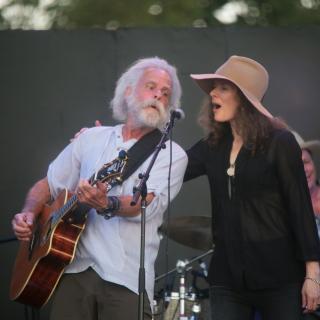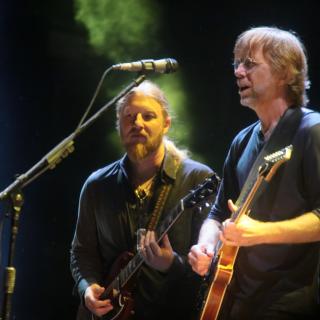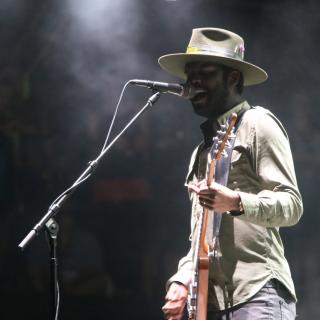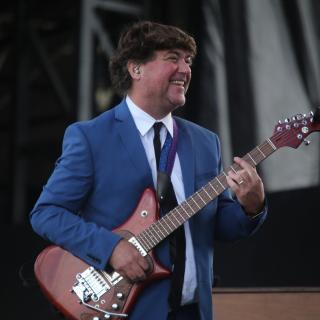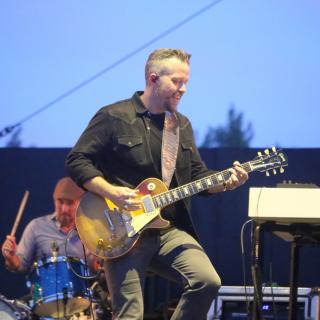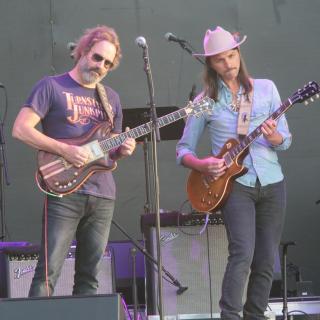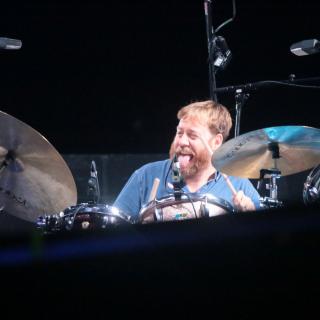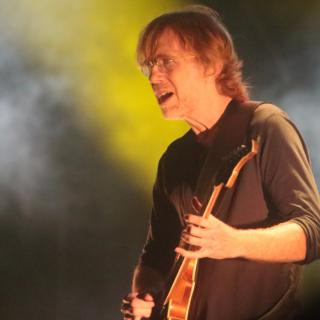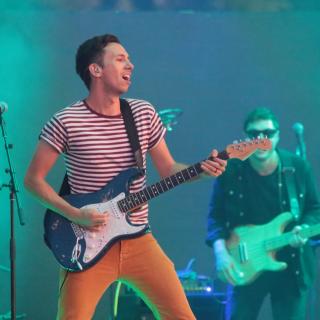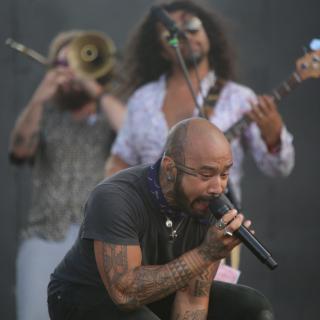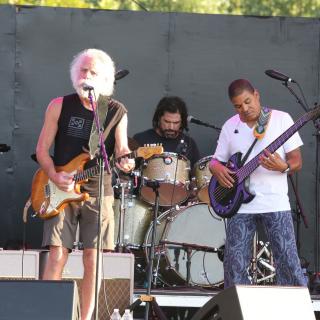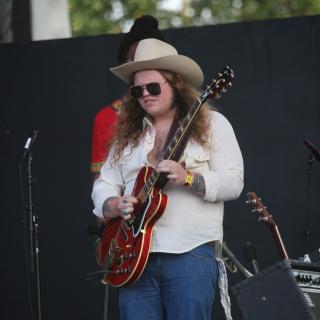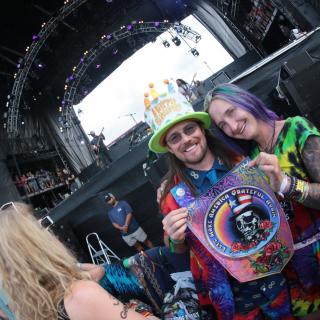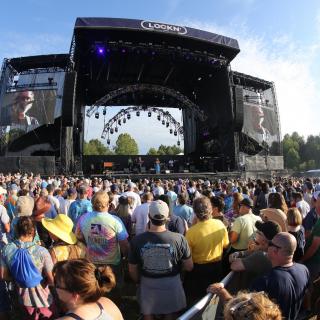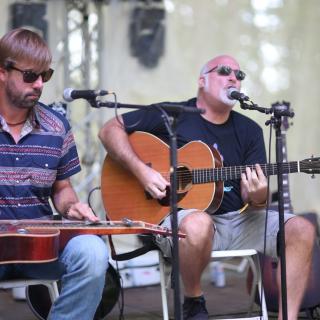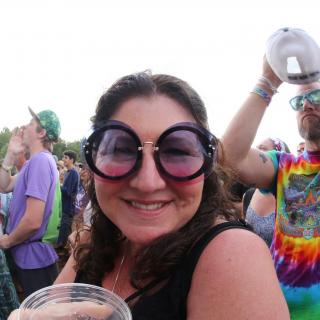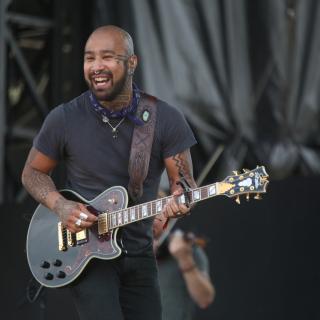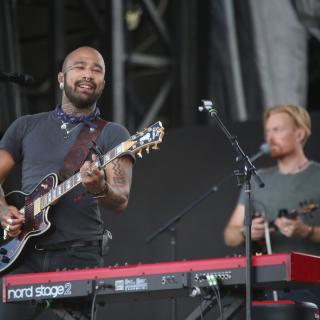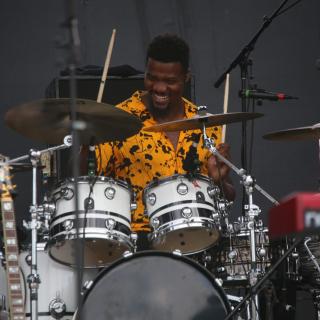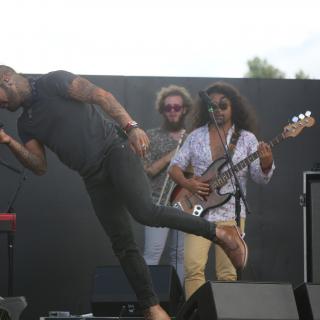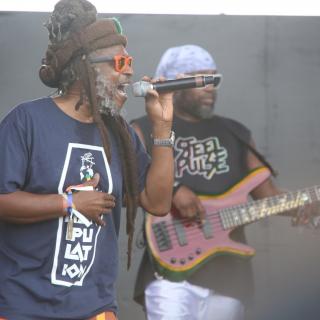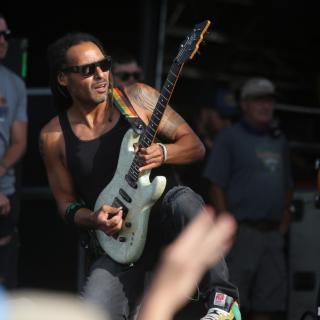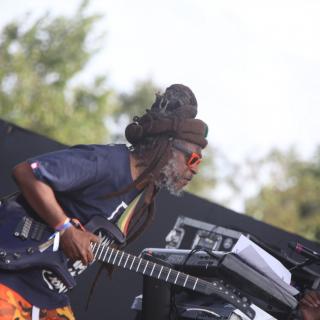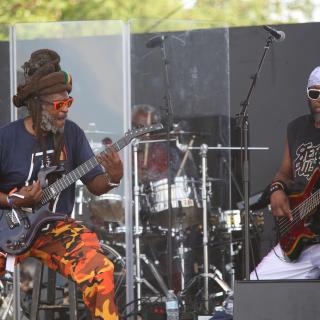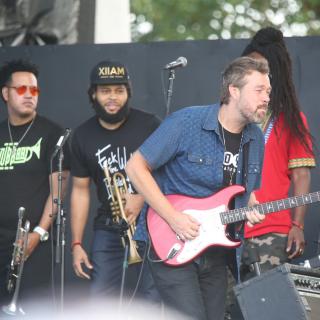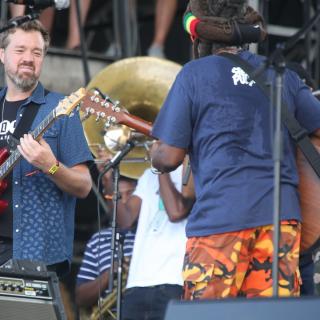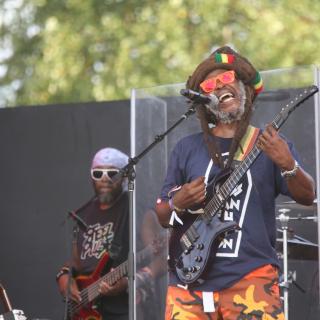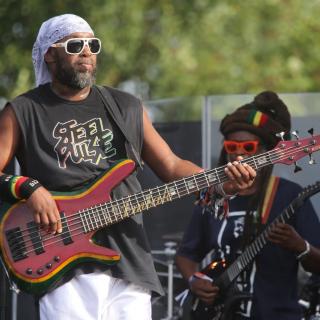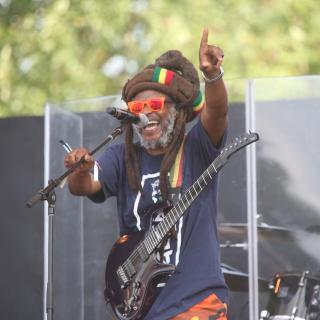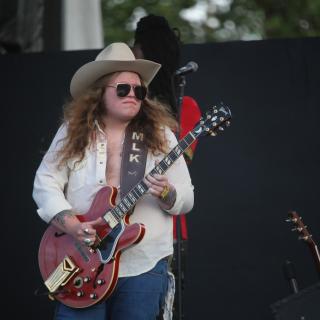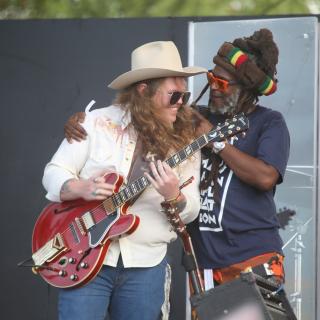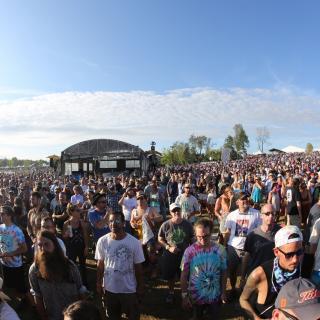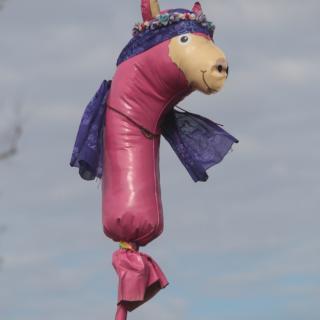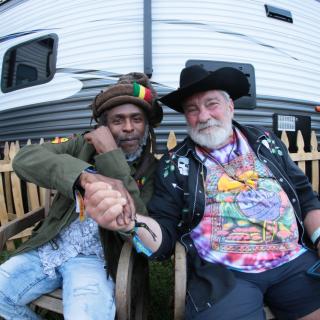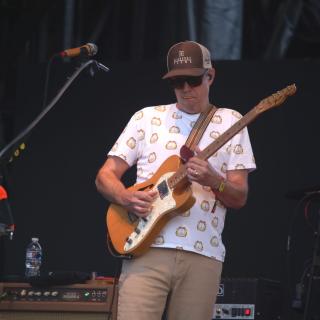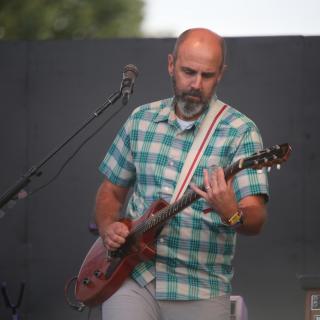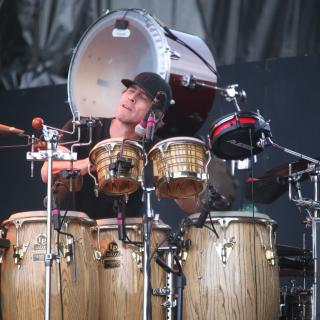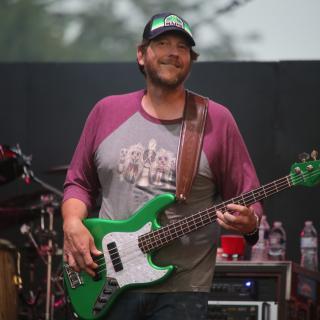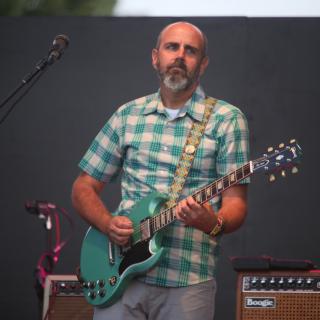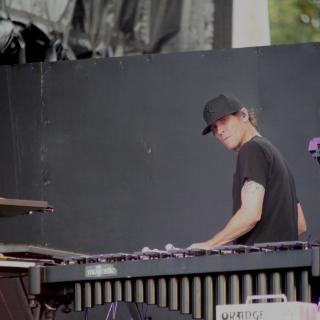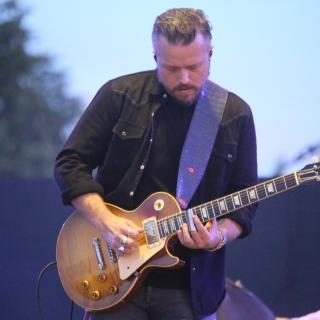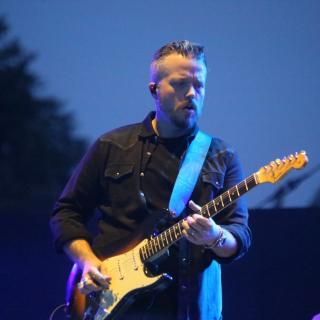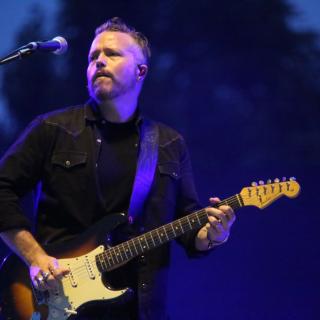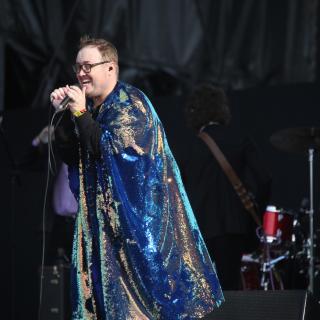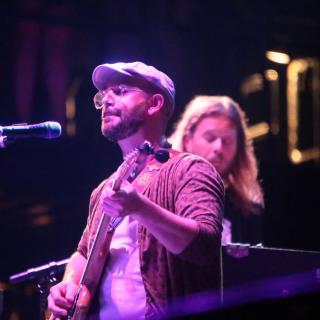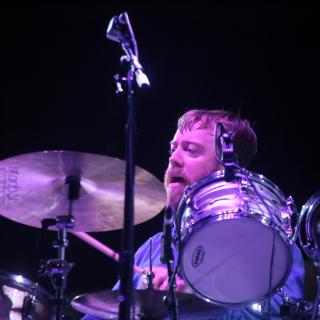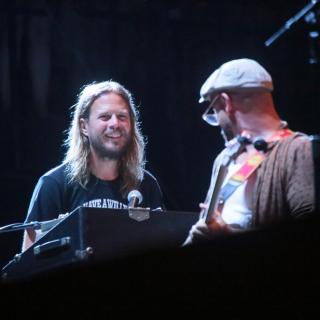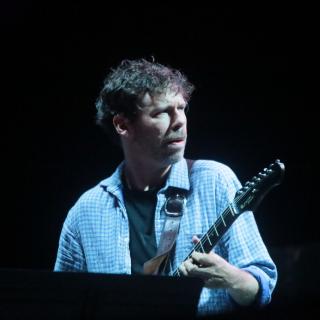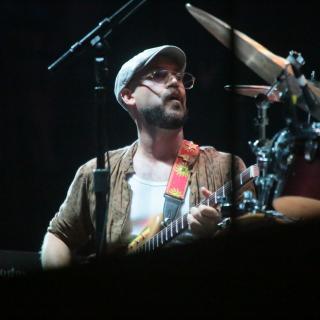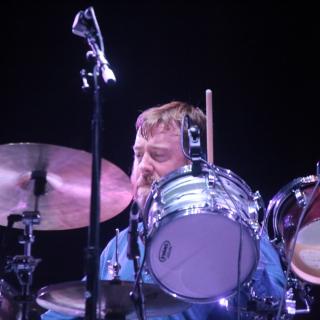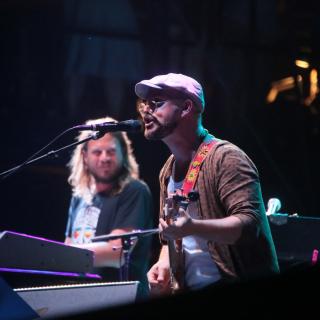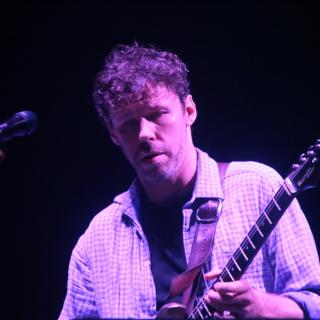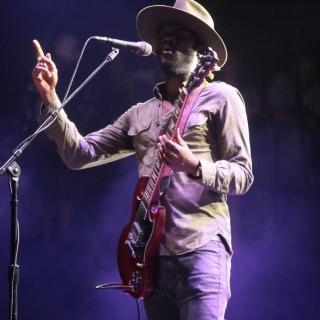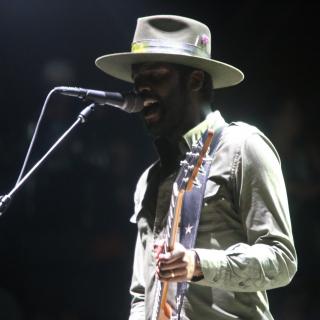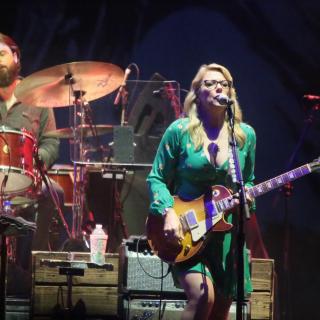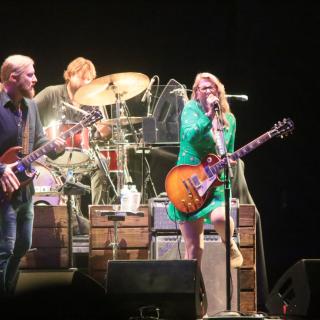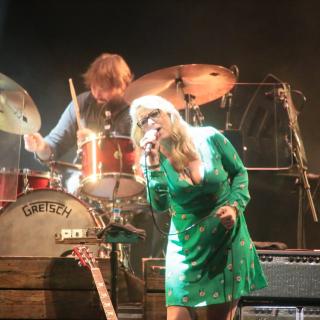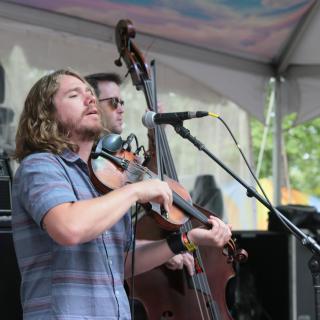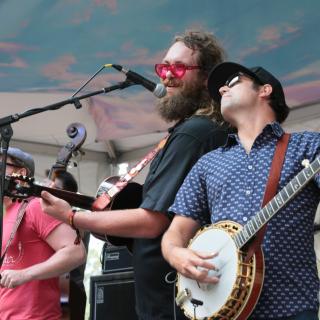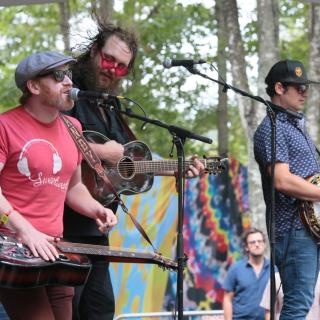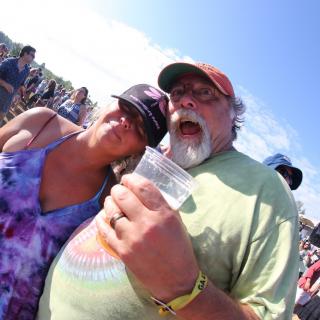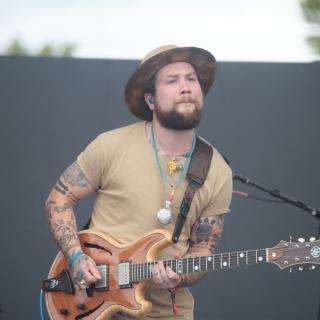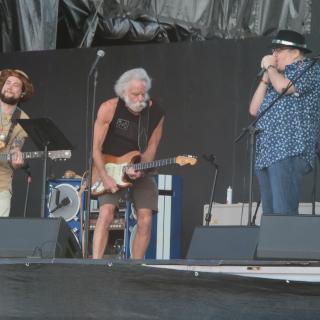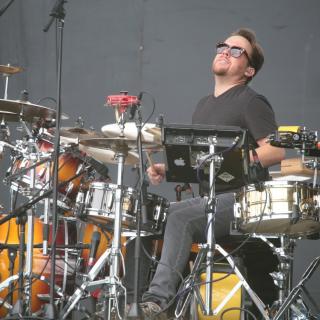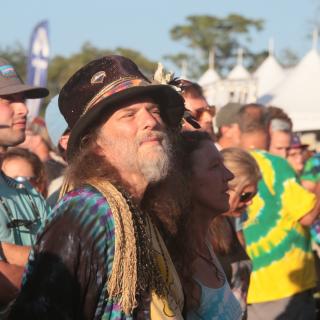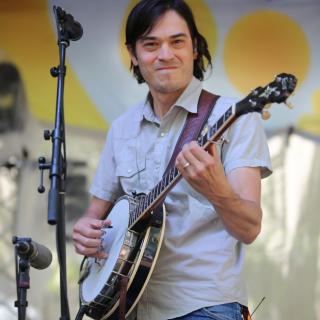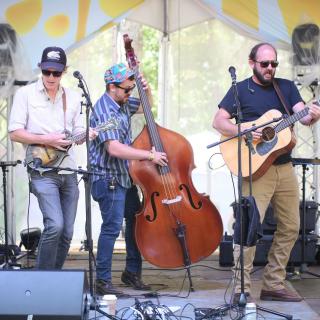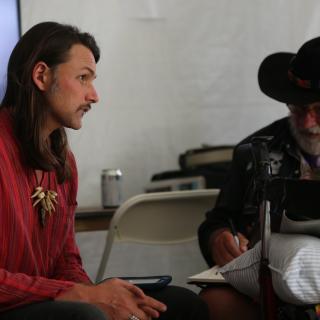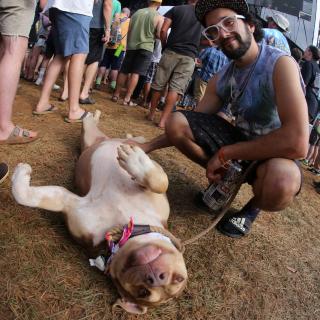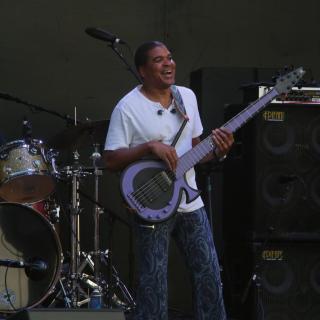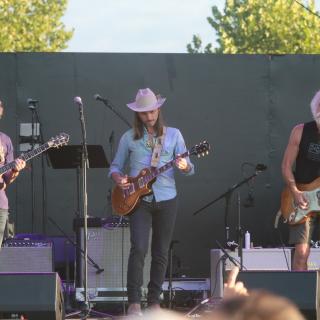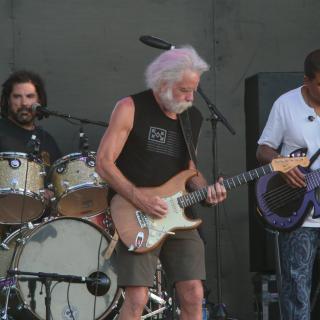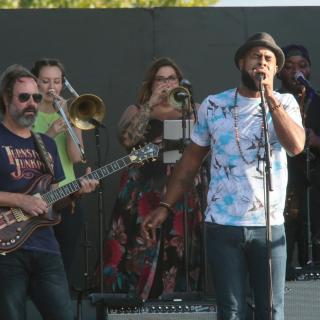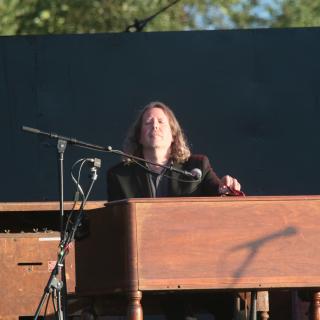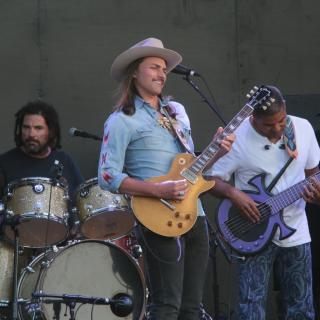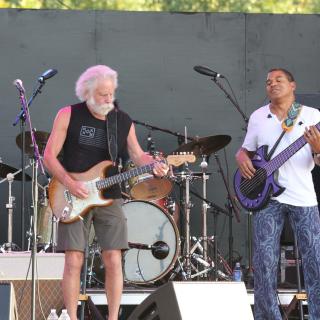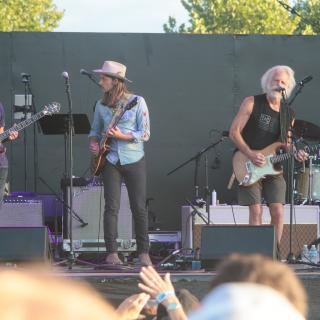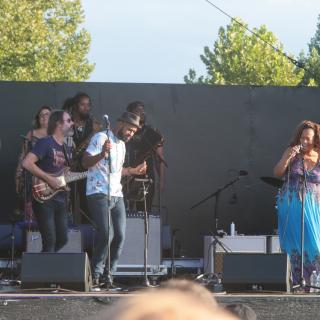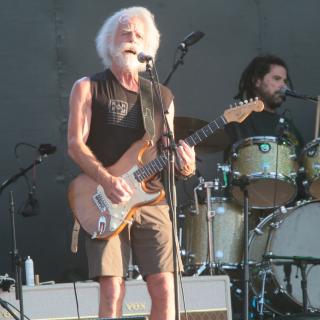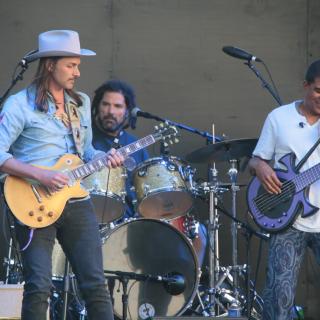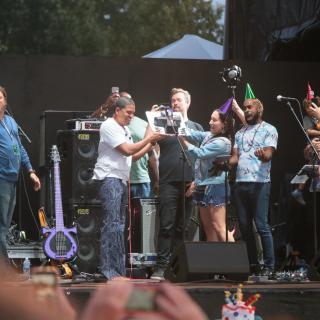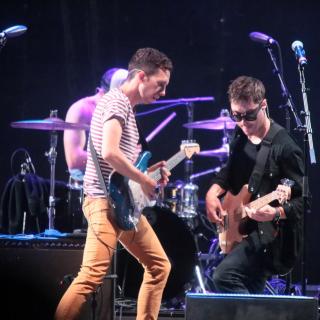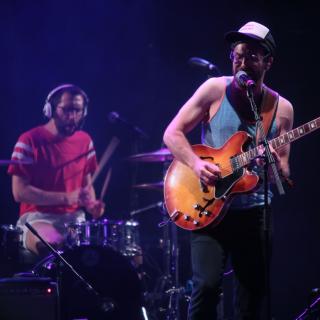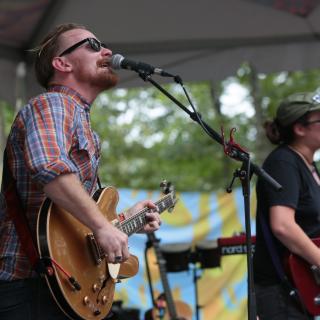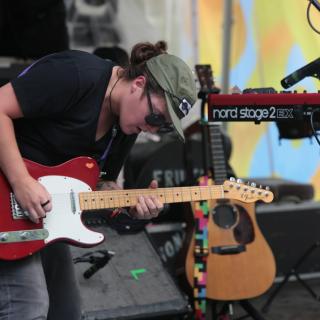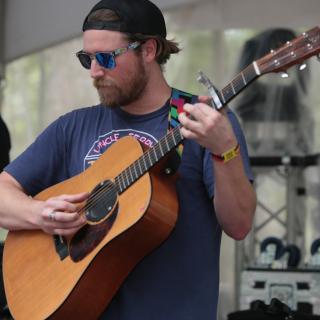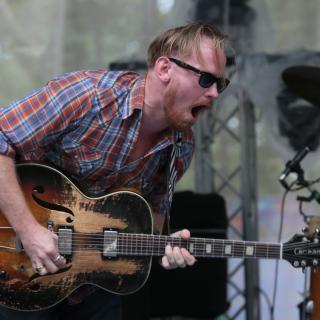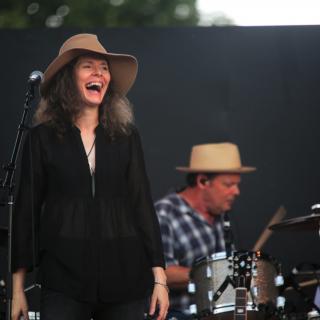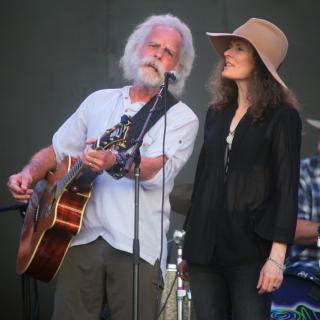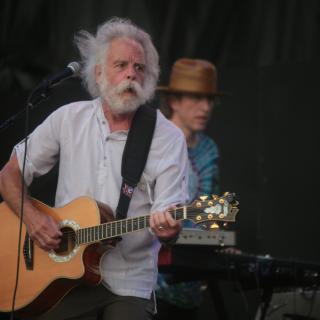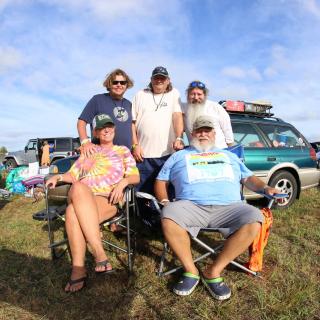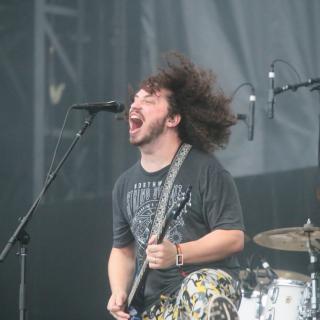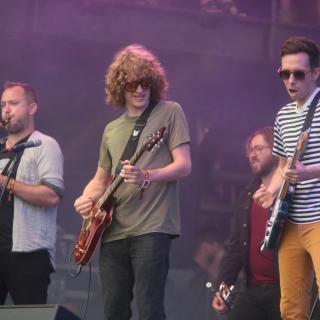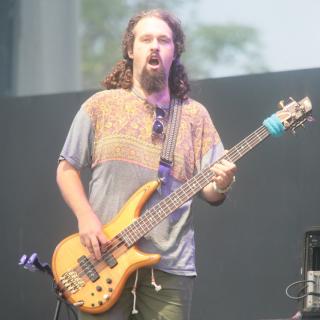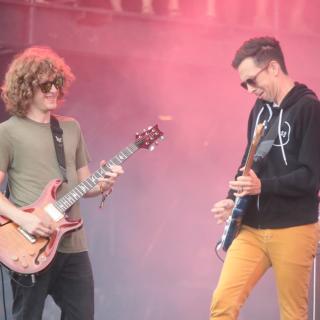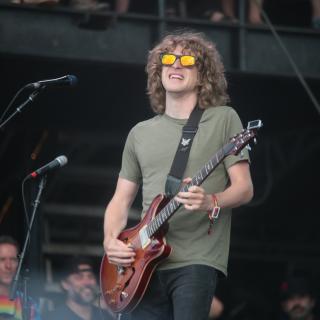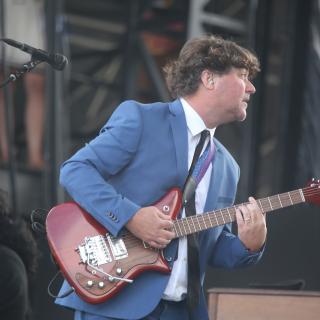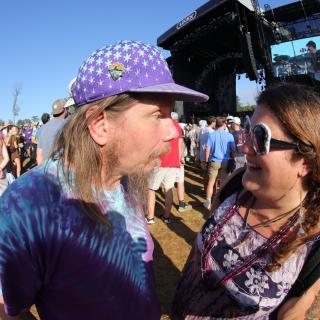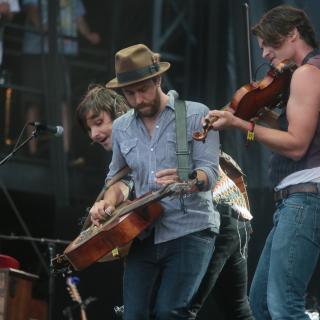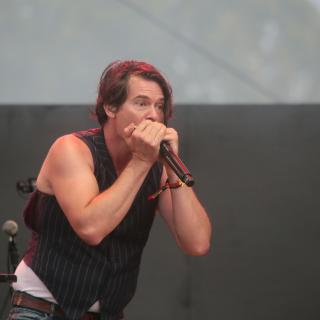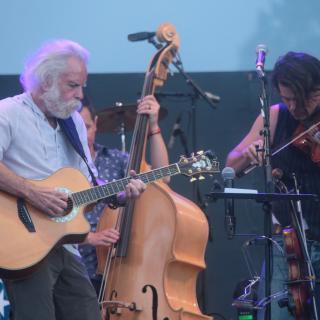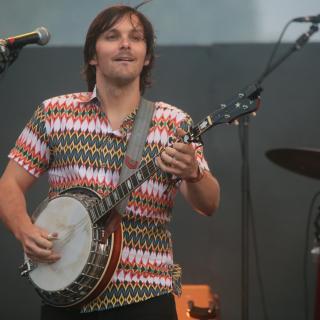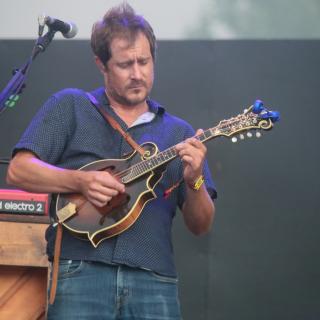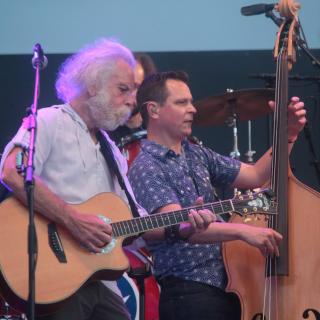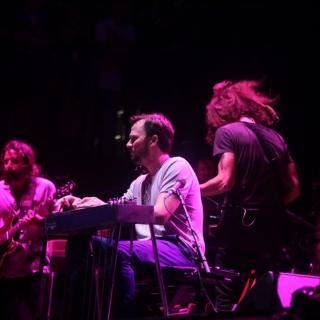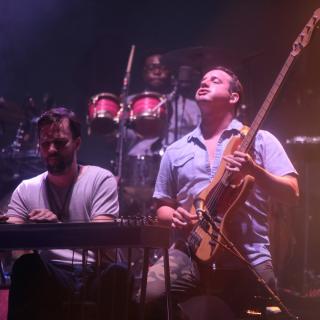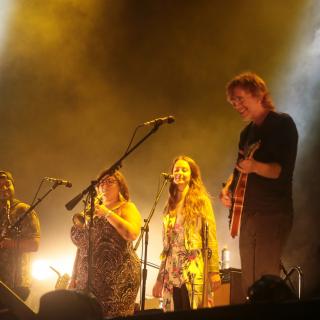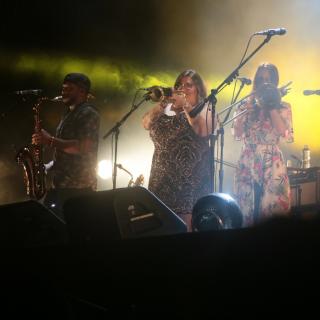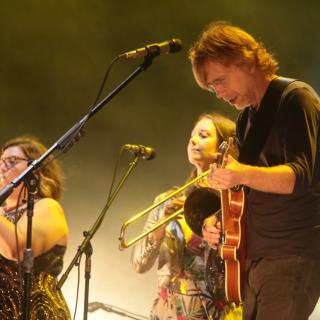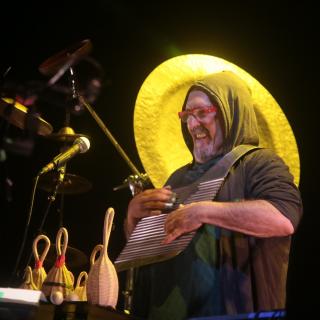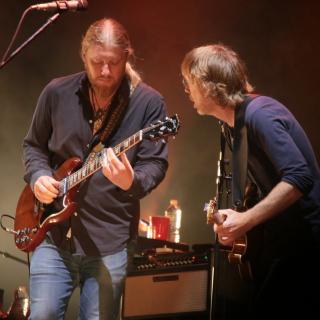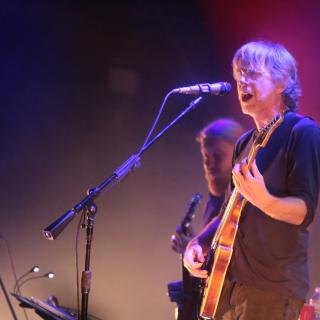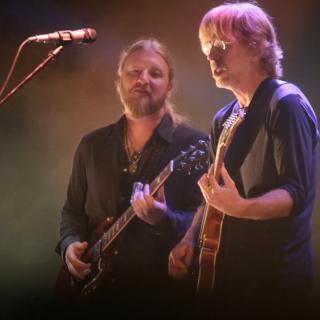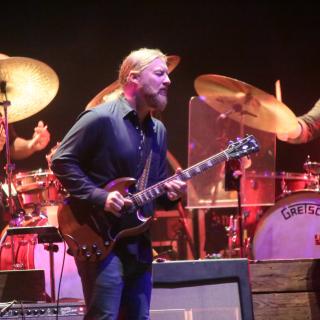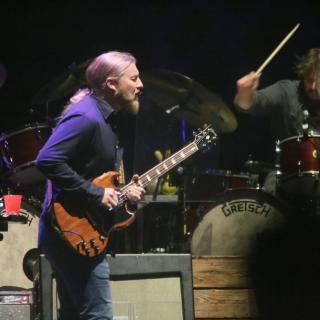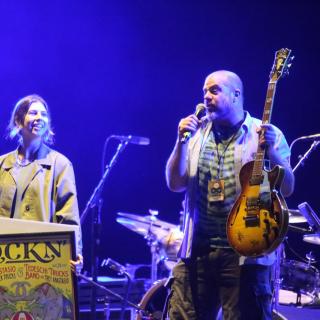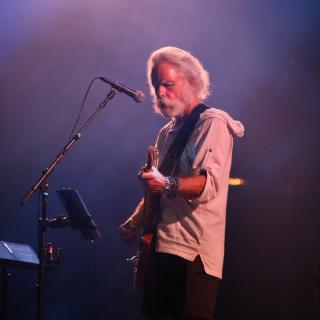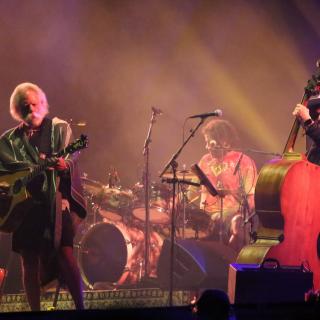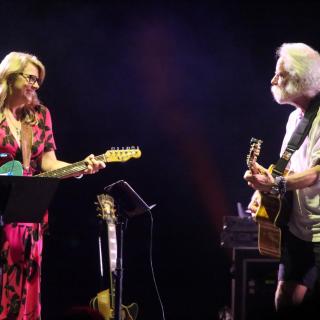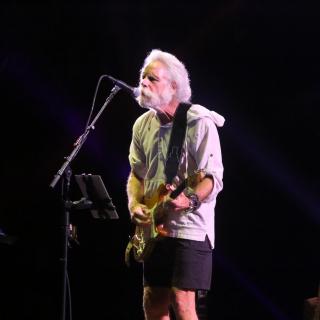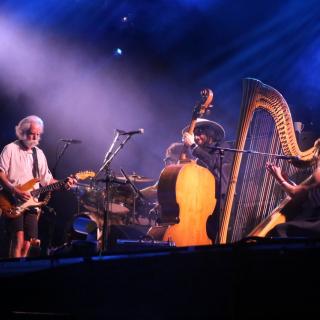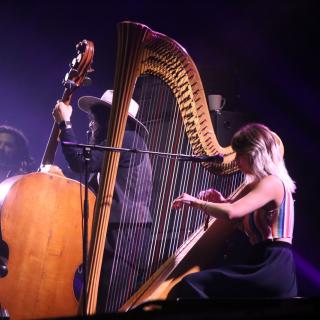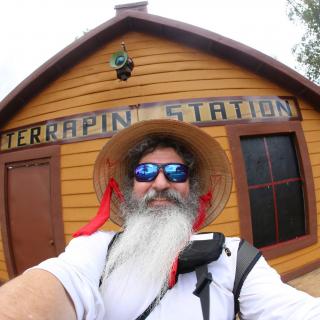Lockn' Music Festival's symbol of almost interlocking rings suggests eternity. And, each year's gathering of many of the world's best musicians seems to bring Lockn' closer to joining those rings and creating the everlasting.
At Lockn' 2019 in Arrington, Virginia, music filled the hills and valleys while individual spirits were revived, personal cultures were developed and honed, and healing stood as a weapon of choice in a world split between blessing and crisis.
Surrounded by the Blue Ridge Mountains, between Lynchburg and Charlottesville, Lockn's music created a state of healing and personal renewal wherein joy was bounded only by an increase in personal understanding and the related creation and development of individual cultures.
Music's power was everywhere, with a communal vibe built upon miles of smiles. In a majestic mountain setting, a sea of fans enjoyed a feast of musical collaborations by a wide range of performers, from the New Orleans inspired jazz of Preservation Hall Jazz Band to the Thai-influenced meditation/psychedelic jam of Khruangbin , with heavy doses of pure shredding jamband, all of these featuring icons and newcomers. With a variety of racial, gender, age,and musical styles, Lockn's revolving stage brought one artist or band after another into the sun or rain of the four-day festival.
Among the sea of fans camped in forests, hillsides, and farmland, deadheads and legions of jamband fan nations spawned by their legacy were well represented, no surprise since Lockn' represents in part a celebration of the life and legacy of The Grateful Dead, and often features members of the Grateful Dead and related artists, though that is a stepping stone to this wide pallet of musical performances. Attendees came to Lockn's Virginia Blue Ridge setting from Spain to California to all parts of Virginia and North Carolina. Lockn' has a way of evoking Woodstock, recently celebrating its 50th anniversary.
Among the highlights of a festival full of them were The Tedeschi-Trucks Band collaborations with Trey Anastasio of Phish. Listening to Lockn' conversations, these were likely the crowd-favorite performances, along with the numerous collaborations and solos performed by The Grateful Dead's iconic Bob (affectionately known as Bobby) Weir. My list of favorites would look like this (in this order): Bob Weir, Old Crow Medicine Show, The Revivalists, Steel Pulse, Tedeschi-Trucks/Anastasio collaborations, and Susan Tedeschi.
Festival promoters focused more than ever this year on collaborations. Adding icing to the cake, they announced close to festival opening that young genius Marcus King would be collaborating throughout Sunday's final day performances, including playing with the British (born Jamaican) seminal reggae band Steel Pulse. The band's founding member David Hinds told me: "We've played with Marcus before. If he does not become known in the same breath with Jimi Hendrix, Robert Plant, Stevie Ray Vaughan, and others as one of the greatest guitarists, then something is very wrong!" In addition to his guitar mastery, Marcus' heart-searing voice and humanistic persona lent extra magic to an already powerful line-up.
The Tedeschi/Trucks/Anastasio collaboration blew the roof off with two nights of supercharged guitar playing and vocals. Fans were in awe of Trucks' ability to elevate his playing with speed, precision, and musicality into the guitar stratosphere. Anastasio also excelled, and Tedeschi blended in her soul-bending vocals. One fan shared her feeling that these performances manifested a compelling blend in terms of racial, ethnic, and gender diversity.
On Thursday, the first day of the festival, nature created its own fireworks, challenging campers preparing for the first festival set. A violent storm blew through, destroying entire campsites, and causing others like myself to hold on to tents and other structures with dear life, many likening it to the tossing waves of a ship at sea. As if that wasn't enough, a camper under the influence (I'm told) of six hits of acid started tearing down still-standing tents, saying that the poles would be dangerous projectiles. A police swat team arrived and took "Hurricane Bob," as campers came to call him, away after festival staff clipped off his admission tag. Surviving the storm brought camp neighbors together with a bond formed by strangers helping strangers, one of the best features of festival life is making new friends with folks you cross paths with in the camping areas, the beer lines and on the show field.
One of the first bands to appear and one of the most unique was Khruangbin. The trio includes a young man and statuesque young woman, both with long dark hair blanketing their heads down to bangs in front. The woman, Laura Lee, on bass, flowed around the stage in a gown covered with electrifyingly-colorful metallic spangles. Their music embodies a Thai chording system to create a melodic base for their mesmerizing sound, music which incorporates numerous world musics as well as riffs ranging from soul to psychedelia. Trey Anastasio joined into their high-octane set.
Original Grateful Dead member, Bob Weir, a frequent performer at Lockn', seemed almost everywhere at once, playing solo and in many collaborations. One of those collaborations was with Old Crow Medicine Show. After Weir left the stage, OCMS lead singer and songwriter Ketch Secor said to the crowd: "I just had a dream that I was on a stage playing hillbilly songs with Bob Weir!"
As a long-time fan of both The Grateful Dead and Old Crow Medicine Show, having seen both numerous times, this show was dope. This was to me the best OCMS show ever, better even than those early "Wagon Wheel" days when their fresh energy was breaking onto the scene. Ketch outdid himself in his stage dynamics and gymnastics as well as powerful, twangy vocals, furious fiddle playing, and playful interactions with the crowd, often pointing out the Virginia-based content of the songs, from the James River to the Appalachians.
Another personal favorite that I'd first seen at Lockn', lead singer/songwriter David Shaw and The Revivalists played what was, for me again, the most dynamic performance of theirs I'd seen yet, though he didn't make his way through the crowd like he did at Lockn' 2017 to the dismay of security trying to stay with him. They sang hits like "Wish I Knew You," along with some new songs.
Funk jam band Pigeons Playing Ping Pong brought their jamming best to their set, with their lead singer Greg Ormont's widespread and never-ending grin and curly long hair cascading around his head like a halo. From Baltimore, the lively, playful band started as students at the University of Maryland. The audience floated like waves to Pigeons' river of jam.
Getting back to Bob Weir, he showed up, guitar in hand throughout the fest, appearing in many collaborative performances , culminating in a final show featuring himself solo and in duets with Susan Tedeschi. I heard some complain that they felt Weir wasn't, in that final set, up to performance level and didn't match the efforts of Tedeschi. While I respect their opinion, I had a very different take. I was close to the stage and the jumbotron, and I was entranced by the interaction of Weir and Tedeschi. I felt that, instead of being loose, he was interacting carefully and with nuance with Tedeschi, creating a mini-masterpiece of interaction while harmonizing on a brilliant collection of some of the 20th Century's most important (if not best-known) songs, including tunes by John Prine, Kris Kristopherson, and The Grateful Dead. One of these was the heartrending Cindy Walker/Eddie Arnold classic, "You Don't Know Me." "You don't know me," Weir sings, with sadness and feeling, to Tedeschi, looking directly into her eyes. Tedeschi responded with her own intensity, "Well, I thought I knew you!," and Weir unrelentingly replying, You don't know me!" And, on it went, with audience near me reacting in laughter and tears.
That set the stage for some Bob Weir solos that focused on some Dead classics that literally brought tears to my eyes. To me, it appeared that he'd made the choice to sing these gems directly from the heart, without electric adornment, though he can jam and shred with the best of them.
Another set featured Oteil Burbridge, with a stage full of other top performers the likes of Eric Krasno, Melvin Seals, and Weir. The crowd sang "Happy birthday" to Oteil, which he responded to with a warm, self-effacing thank-you. Others included Neal Casal . Very sadly, this was the last live performance of this much-liked, hugely-talented artist, who tragically lost his life to a battle with depression, shortly after the festival.
Duane Betts appeared in the set also, displaying amazing musicianship with playing and presence that, though brief, was a highlight of the show for me. He was to have done a set with his Allman-Betts Band, featuring himself, son of The Allman Brothers' Dickey Betts, and Devon Allman, son of Duane Allman. They were unable to perform that set as Devon was recuperating from emergency appendectomy surgery, occurring in Germany, while the band was on tour there.
When I interviewed Betts, he was wearing a striking necklace made from of a variety of wildlife teeth, made, he told me, by his father for him. I had been told not to ask more than one question about The Allman Brothers Band, as the The Allman-Betts Band wanted to distinguish themselves on their own, not as a cover band or simply another manifestation of their fathers' music. I did ask him if and how his dad had influenced him, and, if so, in what way.
He responded that his own father supported him when he told him he wanted to play drums. "My dad said he was there to help me if and when I wanted his support. Later, when I decided to play guitar, He said the same, that he was there for me, to offer help if I decided I wanted it at any point in my development." Betts, a thoughtful, quiet man, said, "I learned to play almost entirely from listening to records and radio. I would listen and teach myself the chords and how to play."
Allman-Betts Band's newly-released album, "Down to the River," with hit single, "Shinin," he said was a culmination of their musical efforts. " The band gets more comfortable playing with each other as you get deeper into a tour," he said, "and some nights are magical, and other nights aren't. As you go on, the more tunes can expand and take on different shapes. We try to make sure it's not the same every night, that it's balanced and everyone gets to express themselves. Every time you do a first record you have a base you can expand from. And, on that second album, you can add different flavors and colors that weren't on the first album. It's exciting, and at the end of the day, you have to have songs. And, I believed we're proven that we can write some songs."
When I asked his age, and he replied 42, I looked at him in surprise as he looks more like 20-something. He read my face and said with a modest grin, "I'm a late bloomer." He then repeated himself, "I'm a late bloomer," smiling again, and added that he "had to get past some things, to go through some growing up, to get the place where I am now." Another significant development in his life was about to happen. He told me, happily, that he would be getting married in September, adding that his fiance is a good friend of his friend Marcus King's girlfriend.
Yet another significant set was that of Steel Pulse, one of the seminal, most influential and best bands in reggae history. Speaking with him later in the artists' compound, founding member and lead David Hinds said they were glad to play Lockn' and play again with Marcus King. The band had given a knock-out performance, blending the old and the new from their recent album, their first in fifteen years, "Mass Manipulation." The album's lead single "Cry Cry Blood," has been called a "meditative rocker." It takes up Steel Pulse's life-long call for social redemption and change in a corrupt world.
He told me, "My parents brought over from Jamaica, a number of musical styles, including calypso and the newly-developing reggae." He went on to describe the many musical influences on him from The Pointer Sisters to the Stones to Stanley Clarke. Certain U.S. bands struck him in particular. "I discovered Climax Blues Band, ... and Gil Scott Heron, ... Up until then I thought it was just, 'Baby, I love you' in American music. It became a whole different ball game in terms of what was being said there, there was also The Last Poets,... we were exposed to that philosophy, and reading "Soul on Ice" and other books. As we witnessed the political disproportion the U.S. had in terms of race, ... we became politically-motivated and determined to try to approach that in our own music." "Things haven't changed," he later said.
Hinds told me of his early days, after immigrating as a child from Jamaica to Birmingham, England. At first, he said, he wanted to be a visual artist, and be the first in his family with a college degree, which he mimicked posting to a wall. Instead, he said, the burgeoning reggae music scene beckoned him. "It was exploding at the time." Before long he was playing with the greats. I asked who most influenced him: "Without doubt," he said, " Bob Marley. I played in Bob Marley's band, and I've never seen anything like it before or since. I learned so many things from him. He did everything as if it was the last time ... whether singing or fixing a broken amp during performance. He gave it his all, gave the best he could all the time. I've played with many great artists ... Bob Dylan, Tosh, even James Brown. All of this was great, but never anyone like Marley."
Nahko and Medicine for the People gave a soulful performance interspersing melodic grooves and vigorous jams. Gary Clark, Jr., looking awesome in his tan gunslinger-like outfit and cowboy hat, played a shredding, yet ballad-rich rock blues set. Jason Isbell did a powerful, bluesy set, while St. Paul and the Broken Bones presented their usual combination of theatrical and soulful vocal flair.
Moonalice barely missed being rained out, but, undaunted, before a small audience (many thought the show had been rained out), did their rocking Dead-tinged best. "In the spirit of Lockn'," we wanted to feature brothers and sisters, the T Sisters and The Chambers Brothers," lead Roger McNamee told me. They were both incredible, the radiant sisters doing the Dead's "Uncle John's Band," and other greats. Original member of the Chambers Brothers, Lester Chambers, white-haired and trim, and his son Dylan, sporting a huge halo of curly orange-red hair did some Chambers Brothers' standards, including "The Time Has Come Today" and a mind-blowing rendition of "People Get Ready," two of those songs welded into the consciousness of many of us of the Woodstock generation and after. The elder Chambers' voice has added a certain level of grit that made the songs cascade like a river of wave-mellowed sand and gravel.
McNamee is also known for his years as a successful investment broker and Mark Zuckerberg mentor, an unlikely rocker background that he told me he sees no surprise in ("We didn't have children, and I don't play golf."), and author of the recent "New York Times" bestselling book, "Zucked, Waking Up to the Facebook Catastrophe." As is their habit, after the set, Moonalice distributed free, beautiful, and solidly-produced posters commemorating the show to each audience member. He gave a shout-out to Lockn' master mind Peter Shapiro, who could be seen here and there throughout the festival, saying hello and being sure things went according to his staff's intricate planning.
Keeping it all together and helping people of all needs was Dan, who ran the ADA camp, and who also has a major disability like me, and his dedicated, never-tiring (sometimes going with 1/2 hour of sleep, one told me) staff, his "boys" as he called them, as well as the Virginia Medical School doctors and staff who treated me in the on-site infirmary, and security, "Hang," media, and other staff and volunteers. The Lockn staff seem truly dedicated to make sure that festival is accessible to fans with various disablities. The festival has sign language interpreters at the stage for the hearing impaired, and incredible ADA accessible platform in the show field to give those with access needs a great view of all the action. They also provide golf cart shuttles for those needing assistance moving to and from their campsites to a spot that makes it easy for them to come and go from the main stage. The ADA camp staff goes above and beyond, helping patrons setup and take down their camps if needed, shuttling them to the general store, ice and water stations.
Lockn 2019's now history, and work is already begun in earnest for next year and another return to its singular source of magic, where the world takes shape once again for many of us through nearly a week filled with music loud and soft, jagged and clear, painful and joyous.
- Ron Wray
- Photos by Jerry Friend



